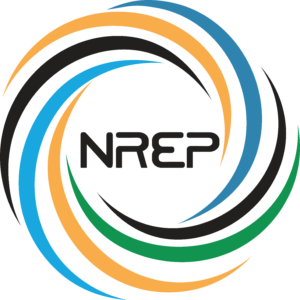On the energizing morning of May 28th, 2025, Luwero District came alive as the Ministry of Energy and Mineral Development (MEMD), through the National Renewable Energy Platform (NREP), led a dynamic clean cooking outreach campaign. Hosted at the Luwero District Headquarters, the event set out to break misconceptions about Electric Pressure Cookers (EPCs) and champion their integration into everyday cooking practices. The initiative drew a diverse and engaged audience, including students, local authorities, faith leaders, healthcare professionals, and development partners ,all united by a common goal: advancing climate action and promoting energy-efficient solutions within households and institutions.
The event was marked by a symbolic moment as Dr. Brian Isabirye, Commissioner for Renewable Energy, officially handed over three Electric Pressure Cooker (EPC) kits to Rt. Rev. Bishop Wilson Kisekka, underscoring the Ministry’s commitment to inclusive energy solutions. The outreach was further enriched by insightful contributions from Ms. Oliver Mbakolaki of MEMD and Ms. Lydia Nandawula of the Foreign and Commonwealth Development Office. Beyond the formalities, the campaign served as a powerful platform for equipping participants with practical knowledge, real-life demonstrations, and renewed motivation to become advocates of clean cooking technologies in their homes, schools, and broader communities across Luwero.
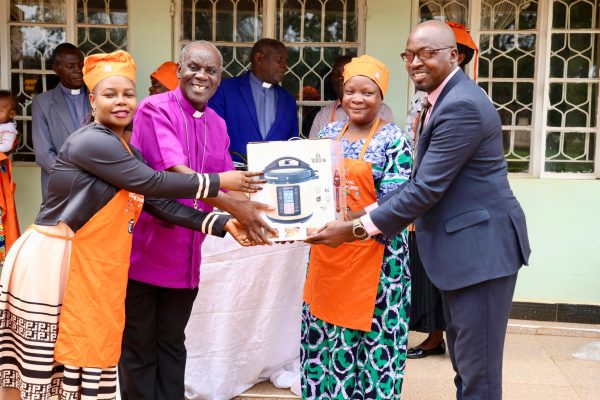
Key Highlights
The day began with a high-energy e-cooking demonstration led by students from Luwero Secondary School. Together with peers from Amazing Grace High School, Diamond Secondary School and Luweero SDA Primary School, they prepared local favorites, posho, Matooke, beans, beef, and rice, using EPCs. Their spirited participation helped debunk myths about EPCs being unsuitable for traditional Ugandan meals.
The aroma of freshly cooked food delighted participants and emphasized the technology’s effectiveness in preserving flavor and reducing cooking time.
Dr. Nicholas led informative sessions, explaining EPC functionality and its benefits, reduced electricity use, faster cooking, and improved efficiency. His interactive style encouraged participants to reflect on their cooking practices while considering more sustainable alternatives. A key moment was a raffle draw where adult winners received EPCs and students were gifted branded aprons, creating excitement and reinforcing positive messaging.
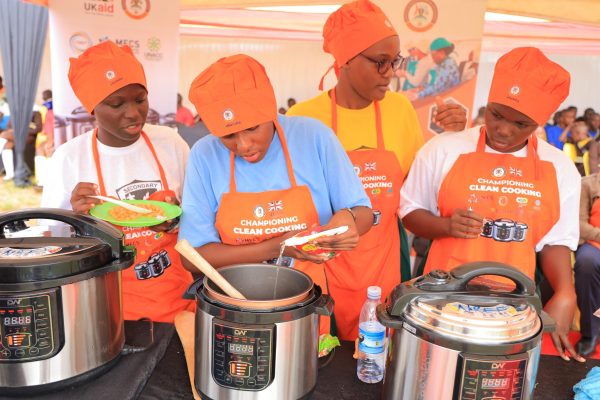
The campaign also received strong support from local leaders. Mr. Kalungi David, Secretary for Production and Natural Resources, applauded the Ministry’s efforts and urged communities to become clean cooking ambassadors. Mr. Asaba Innocent Birekeyaho, Luwero’s CAO, emphasized the importance of making EPCs more accessible to households and institutions like schools. He also called on the Ministry to support capacity-building for energy self-generation and explore alternatives due to recurring power outages in the district.
Key Challenges & Lessons Learned
Despite the strong enthusiasm for Electric Pressure Cookers (EPCs) was high, a few challenges emerged. Affordability remains a barrier for many, especially in rural and low-income communities. Participants and local leaders called for tailored financing models to increase accessibility, particularly for schools and health institutions where bulk cooking is common.
The issue of electricity reliability in Luwero was another concern. As EPCs require consistent power, exploring off-grid or hybrid solutions emerged as a key recommendation. Stakeholders also noted that sustained education and community involvement, particularly through youth and religious institutions, is essential for broader adoption.
A major lesson was the value of youth-led demonstrations and hands-on training. Students, being central to household cooking, proved effective messengers of change. The event reaffirmed that practical engagement and community-driven outreach can significantly shift perceptions and accelerate clean energy transitions.
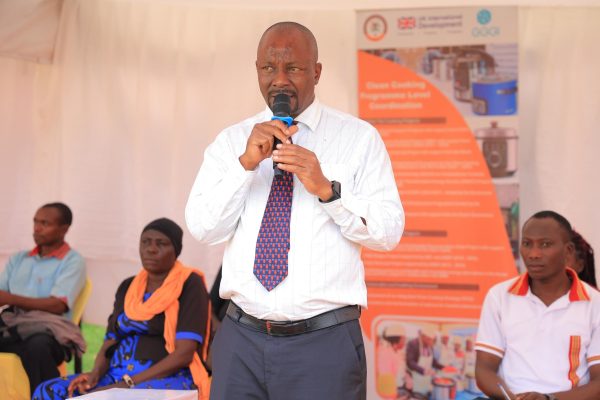
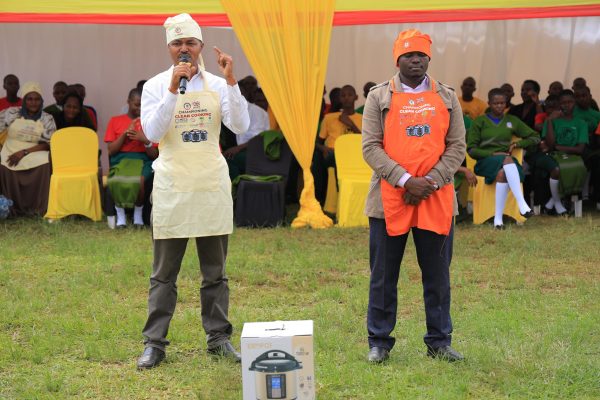
Conclusion & Next Steps
The Luwero Clean Cooking Outreach Campaign showcased a powerful blend of education, leadership, and community engagement. By putting EPCs in the hands of students and leaders, the campaign sparked momentum towards a cleaner, more energy-efficient future. Moving forward, efforts will focus on expanding demonstrations, strengthening school involvement, and building local capacity to support clean cooking technologies. With continued collaboration between government, development partners, and communities, Luwero can become a model district for sustainable cooking solutions, one household at a time.


